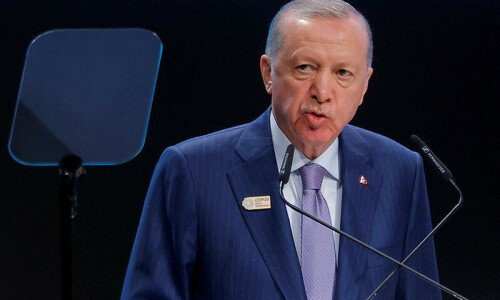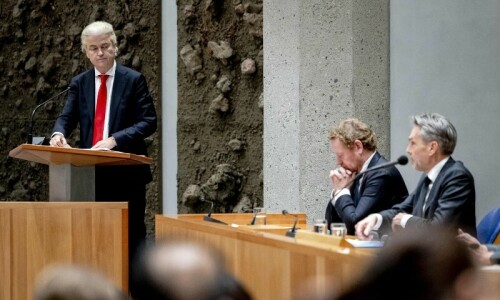
LAHORE: The records of thousands of British Indian Army soldiers from united Punjab have been made available to the public by UK-based citizen historians for the first time after around a century.
The ‘Punjab Records’, as they have been named, which so far lay neglected in an archive in the basements of Lahore Museum, have been accessed and digitised by the London-based UK Punjab Heritage Association (UKPHA) in collaboration with the University of Greenwich to offer an insight into the contribution of Punjabi soldiers to the allied war effort, and uploaded to a website launched to mark Remembrance Day, the day World War I ended, across the world on Nov 11.
Comprising some 26,000 pages listing more than 300,000 individual names, the registers provide village-by-village data on the war service and pensions of recruits from the undivided Punjab, as well as information on their family background, rank and regiment. Un-researched for about a century, these registers were compiled by the Punjab government in 1919 after the war had concluded.
They also offer a detailed breakdown of the recruiting practices of the British Indian Army a century ago and information about individual soldiers revealing insights into their occupational, social, political and faith backgrounds. In some cases, they also detail the awards the troops received and the far-flung theatres of war that they served in, and from which at least 15,000 did not return.
They also help to understand why Punjab was adversely affected by the influenza pandemic, which raged across the world from 1918 and which was largely brought back by returning soldiers.
Seven years after the UKPHA started accessing the records, it has secured the information of 320,000 personnel. This initial effort makes 45,000 records available from Jalandhar and Ludhiana in India and Sialkot in Pakistan as a pilot project to www.punjabww1.com. It aims to eventually make available the entire database of a further 275,000 personnel from 25 districts.
On the website, soldier records have been pinned to their place of recruitment that also enables their descendants to search for soldiers by name, region, regiment or unit. The records can also be searched on a village-by-village basis allowing users to search for their ancestors or others from their familial place of origin.
The records from Lahore Museum have already allowed a number of people to piece together details of the roles of their ancestors or others from their native villages in the war. Amongst them are British politicians such as former Conservative Party Chair Baroness Sayeeda Warsi, author Muhammad Hassan Miraj and Indian actor/singer Diljit Dosanjh.
UKPHA Chair Amandeep Madra said: “Punjab was the main recruiting ground for the Indian Army during World War One, making its contribution as significant as that of Australia. Often referred to as the sword arm of British India, its importance in fighting the Great War cannot be overstated. And yet the contribution of its men has largely been unrecognised. In most cases we didn’t even know their names - until now. Equally we hope that descendants of those who served can fill in some of the gaps and help us build up a richer picture of Punjab’s contribution. Their recollections, family archives and ephemera are of vital importance in telling the full story of the war and of individual men.”
The Guradian quotes Madra as saying that he first approached the Lahore Museum about the files in 2014, having been told about them by Indian military historians who knew of their existence but had never gained access.
Although accounting for less than eight per cent of the population of British India, Punjabis of all faiths -- Hindus, Muslims and Sikhs -- made up around one-third of all troops from the Indian subcontinent and around 50pc of combatants.
Published in Dawn, November 11th, 2021












































Dear visitor, the comments section is undergoing an overhaul and will return soon.